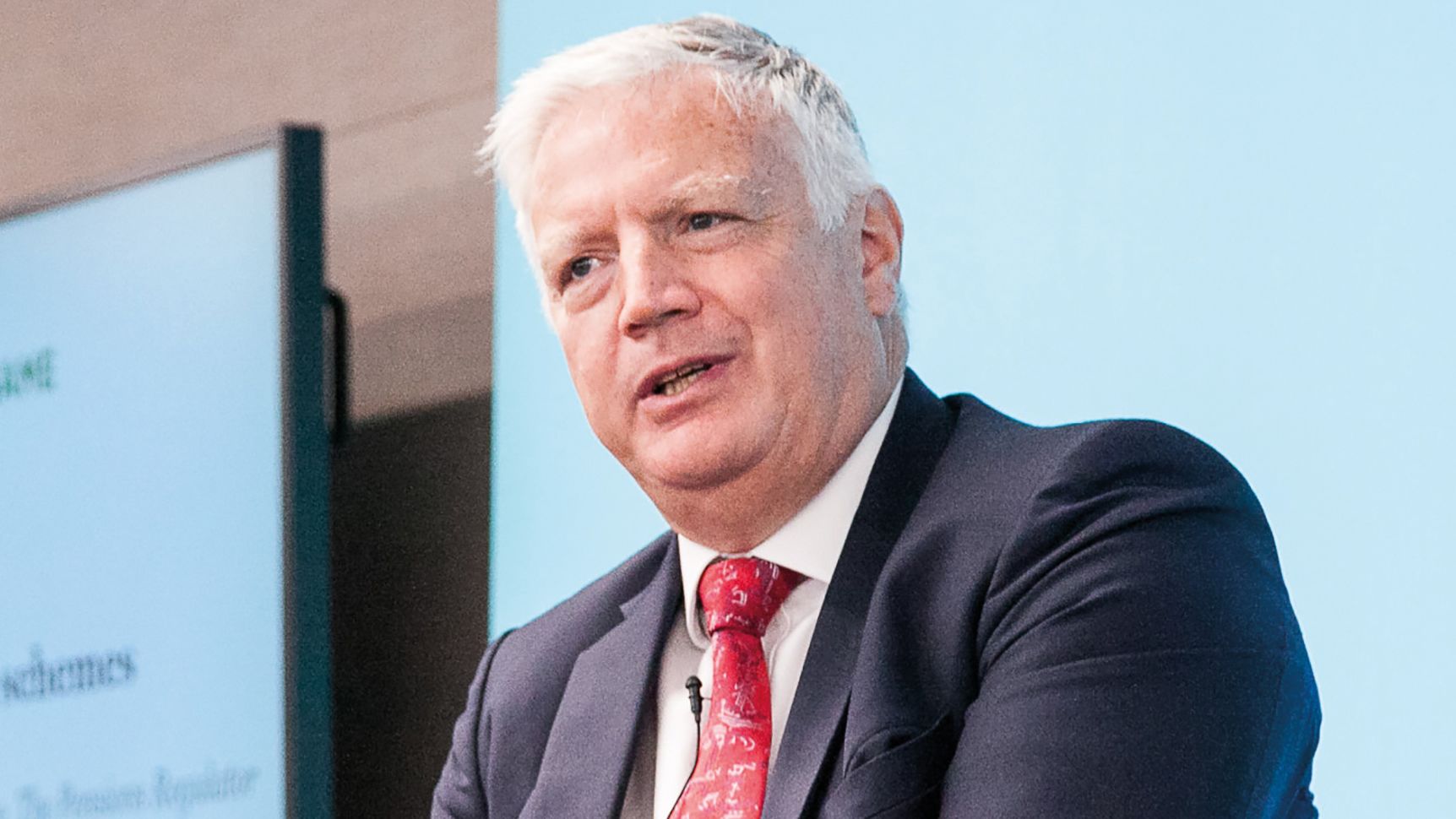Weekly roundup:
He’s taking a risk, he’s checking it twice…

The regulator is coming to town. Welcome to Pensions Expert’s roundup of a week that has seen David Fairs promise in a blog post that open schemes will be allowed to be in the catbird seat under the new defined benefit funding code.
New figures looking at the impact of the government’s reaction to the coronavirus pandemic on the transfer market — pensions, not football — show a predictable lull during lockdown but could presage a “gold rush” in 2021.
The number of buy-ins and buyouts in 2020 looks set to top that recorded in 2019, though the average transaction size will probably prove to be lower; and can anyone save the world from New Yorkers?

David Fairs says schemes need to demonstrate they are prepared
David Fairs says schemes need to demonstrate they are prepared
TPR: You can take risks, but be very careful
Mr Fairs, the Pensions Regulator’s executive director of regulatory policy, analysis and advice, mounted a defence of the watchdog’s new DB funding code on Tuesday, claiming that open DB schemes will be able to continue their current investment strategies under the new regime.
The new code establishes a bifurcated regulatory system governing DB schemes, with the options of a fast-track and a bespoke route.
The proposal has been the subject of intense criticism since it was announced, with various industry players calling for it to be changed, and some calling for it to be abandoned amid fears it would impose extraordinary and unnecessary costs.
The Railways Pension Scheme, for instance, predicted the new code could see its deficit explode by as much as £160bn, arguing that the current regime allows it to invest in a way that suits its unique characteristics; an approach threatened by the imposition of tighter rules.
Responding to some of these concerns, Mr Fairs said it was reasonable to give immature schemes “room to invest in more volatile, but higher return-seeking assets”.
He said open, immature schemes with a steady inflow of new members could continue to invest “based on their expectation that they will remain open” while on the bespoke route, though they should be able to show TPR how they could “manage the risk of their scheme closing or maturing faster than expected”.
Put otherwise, you can have your cake, but you must show what happens when you eat it.
Transfers could go up, or they could go down
On Thursday, Pensions Expert reported on two sets of figures, from LCP and Barnett Waddingham, showing how the anti-Covid lockdowns have impacted the transfer market.
Despite reports that Juventus would look to rid themselves of Cristiano Ronaldo’s sizeable wages, he remained with the Old Lady over a summer transfer window muted by the financial effects of the pandemic.
Barnett Waddingham’s figures showed that member interest in transferring out of their DB schemes declined by around 50 per cent at the height of the first lockdown.
Schemes themselves took steps to mitigate the impact of the market volatility that, at its March peak, could see the typical cash equivalent transfer value for a 60-year-old fluctuate by as much as 15 per cent over a two-week period.
Evidence from both companies suggested that the transfer market largely recovered over the summer, albeit taking a slight hit again with the imposition of the second lockdown in November.
But LCP’s Bart Huby predicted this return to normalcy could pre-empt a spike in demand next year, as the very real prospect of widespread insolvencies and redundancies forces over-55s to look to their pension pots for relief.
Acting against this, however, is the imposition of the Financial Conduct Authority’s ban on contingent charging, that Barnett Waddingham associate Mark Tinsley said could reduce the number of transfers.
So it could go up, or it could go down. There is probably a Hokey Pokey reference to be made here, but this is a serious article.
No prizes for coming second
Rounding off what has been the second-biggest year on record for the number of derisking transactions, engineering group Renew Holdings completed a £110m buy-in with Rothesay Life for its Lovell Pension Scheme, Pensions Expert reported on Thursday.
This latest deal is part of a trend that could well see 2020 beat the 153 transactions undertaken last year, which would place 2020 second in the all-time record books, an achievement likely to be remembered for just as long as it deserves.
However, James Mullins, head of risk transaction at Hymans Robertson, told Pensions Expert that he expects the average transactions size “to be lower than the £286m we saw in 2019, and so the total transaction value in 2020 for buy-ins and buyouts is likely to be a little under £30bn”. This figure represents around two-thirds of the 2019 total of £43.8bn.
The Pension Insurance Corporation, very much a ‘does what it says on the tin’ company, claimed the mantle for the largest single transaction of the year for its £2bn buy-in of the Old British Steel Pension Scheme, while next came a £1.6bn partial buy-in of the Merchant Navy Officers Pension Fund.

New Yorkers to save the world
The third-largest pension fund in the US has made waves with its announcement of a move it hopes will stop us all drowning in the waves caused by climate change.
The New York State Common Retirement Fund, which has $226bn (£170bn) in assets, announced on Wednesday that it will purge its portfolio of energy companies that do not commit to meeting the Paris agreement targets.
Over the next four years, the scheme is to conduct reviews of shale oil and gas companies. The review will also encompass integrated oil majors, and companies engaged in the exploration, servicing and transportation of fossil fuels.
The goal is for the fund to completely decarbonise its portfolio by 2040, 10 years ahead of the Paris agreement target of 2050.
The size of the fund and the scope of its ambition is likely to have significant and far-reaching effects on stock markets, fossil fuel companies, and pension schemes around the world, with pressure placed on the latter to follow suit.
Someone’s dreaming of a green Christmas.
People on the move

Capital Cranfield has appointed Richard Weisz as a professional trustee. He joins from Deloitte, where he spent 19 years in its corporate consulting team. This is the trustee company’s seventh appointment in 2020.
Stuart Travers has joined 20-20 Trustees as trustee director. Based in Bristol, Mr Travers joins from Winterbourne Trustee Services, where he acted as trustee for more than 15 clients.
Caceis has promoted Pat Sharman to UK managing director. Ms Sharman has been appointed as head of the UK business of the securities, depository and administration specialist company, following the cross-border merger of Kas Bank into Caceis Bank.

Stuart Travers
Stuart Travers

Pat Sharman
Pat Sharman
